- Home
- Margaret Atwood
Stone Mattress: Nine Tales Page 11
Stone Mattress: Nine Tales Read online
Page 11
There’s a space to the left of the renowned authoress, and Jorrie slides herself into it. Her hand locks on to Tin’s arm. Her head pokes forward, in an attitude of rapt listening. Is she going to pose as a fan? Tin wonders. What’s she up to?
“Book Three,” says Constance W. Starr. “Frenosia first appears in Book Three. Not Book Four.” She takes another bite and chews imperturbably.
“Oh, of course, Book Three,” says Naveena. She gives a nervous titter. “And Mr. Putnam said, he said you’d put him into the series. When you were out of the room, getting the tea,” she says to Reynolds. “He told me that.”
Reynolds’s face has hardened: this is poaching on her territory. “Are you sure?” she says. “He always denied specifically …”
“He said there were a lot of things he never told you,” says Naveena. “To spare your feelings. He didn’t want you to feel left out because you weren’t in Alphinland yourself.”
“You’re lying!” says Renolds. “He always told me everything! He thought Alphinland was drivel!”
“Actually,” says Constance, “I did put Gavin into Alphinland.” So far she hasn’t acknowledged the presence of Jorrie, but now she turns and looks at her directly. “To keep him safe.”
“This is inappropriate,” says Renolds. “I think you should …”
“And it did keep him safe,” says Constance. “He was in a wine cask. He slept for fifty years.”
“Oh, I knew it!” says Naveena. “I always knew he was in the series! Which book is that?”
Constance doesn’t answer her. She’s still talking to Jorrie. “But now I’ve let him out. So he can come and go whenever he likes. He’s not at risk from you any more.”
What’s the matter with Constance Starr? Tin wonders. Gavin Putnam, at risk from Jorrie? But he’d been the rejecting one, the harmful one. Is there vodka in that water glass?
“What?” says Jorrie. “Are you talking to me?” She’s squeezing Tin’s arm, but not to keep from laughing. Instead she looks frightened.
“Gavin is not in that fucking book! Gavin is dead,” says Reynolds. She’s beginning to cry. Naveena takes a small step towards her but then steps back.
“He was at risk from your ill will, Marjorie,” says Constance, her voice level. “Coupled with your anger. It’s a very potent spell, you know. As long as his spirit still had a flesh container on this side, he was at risk.” She knows exactly who Jorrie is: despite the gold flakes and the bronze powder, she must have known from the first minute.
“Of course I was angry, because of what he did to me!” says Jorrie. “He threw me over, he kicked me out, like, like an old …”
“Oh,” says Constance. There’s a frozen moment. “I didn’t realize that,” she says at last. “I thought it was the other way around. I thought you’d wounded him.” Is this a face-off? Is this matter and antimatter? Are the two of them going to explode each other?
“Is that what he said?” says Jorrie. “Shit, it figures! Of course he’d say it was my fault!”
“Oh my God,” Naveena says to Jorrie, sotto voce. “You’re the Dark Lady! Of the Sonnets! Could we maybe talk …”
“This is supposed to be a funeral,” says Reynolds. “Not a conference! Gavin would hate this!” None of the other women shows any sign of having heard her. She blows her nose, gives a furious, red-eyed glare, then walks away towards the bar.
Constance W. Starr sticks the remains of her sandwich into her water glass; Jorrie stares at her as if she’s mixing a potion. “In that case, I’m honour-bound to release you,” Constance says finally. “I’ve been under a serious misapprehension.”
“What?” Jorrie almost screams. “Release me from what? What are you talking about?”
“From the stone beehive,” says Constance. “Where you’ve been imprisoned for such a long time, and stung by indigo bees. As a punishment. And to keep you from hurting Gavin.”
“She’s the Scarlet Sorceress of Ruptous!” says Naveena. “This is so wicked! Could you tell me …” Constance continues to ignore her.
“I’m sorry about the bees,” she says to Jorrie. “That must have been very painful.”
Tin grips Jorrie’s elbow and attempts to pull her back. It wouldn’t be out of the question for her to jump into tantrum mode and kick the old authoress on the shins, or at the very least start yelling. He needs to extract her. They’ll go home and he’ll pour them each a stiff drink and he’ll calm her down, and then they can make fun of this whole thing.
But Jorrie doesn’t move, though she lets go of Tin’s arm. “It was very painful,” she whispers. “It’s been so painful. Everything has been so painful, all my life.” Is she crying? Yes: real, metallic tears, sparkling with bronze and gold.
“It was painful for me too,” says Constance.
“I know,” says Jorrie. The two of them are gazing into each other’s eyes, locked in some kind of impenetrable mind-meld.
“We live in two places,” says Constance. “There isn’t any past in Alphinland. There isn’t any time. But there’s time here, where we are now. We still have a little time left.”
“Yes,” says Jorrie. “It’s time. I’m sorry too. And I release you as well.”
She steps forward. Is this a hug? thinks Tin. Are they embracing, or wrestling? Is there a crisis? How can he help? What sort of female weirdness is going on?
He feels stupid. Has he understood nothing about Jorrie, all these decades? Does she have other layers, other powers? Dimensions he never suspected?
Constance has pulled back. “Bless you,” she says to Jorrie. The white parchment skin of her face is glittering now with golden scales.
Young Naveena can scarcely believe her luck. Her mouth’s half open, she’s biting the tips of her fingers, she’s holding her breath. She’s embedding us in amber, thinks Tin. Like ancient insects. Preserving us forever. In amber beads, in amber words. Right before our eyes.
LUSUS NATURAE
• • • • • • • • •
What could be done with me, what should be done with me? These were the same question. The possibilities were limited. The family discussed them all, lugubriously, endlessly, as they sat around the kitchen table at night, with the shutters closed, eating their dry, whiskery sausages and their potato soup. If I was in one of my lucid phases I would sit with them, entering into the conversation as best I could while searching out the chunks of potato in my bowl. If not, I’d be off in the darkest corner, mewing to myself and listening to the twittering voices nobody else could hear.
“She was such a lovely baby,” my mother would say. “There was nothing wrong with her.” It saddened her to have given birth to an item such as myself: it was like a reproach, a judgment. What had she done wrong?
“Maybe it’s a curse,” said my grandmother. She was as dry and whiskery as the sausages, but in her it was natural because of her age.
“She was fine for years,” said my father. “It was after that case of measles, when she was seven. After that.”
“Who would curse us?” said my mother.
My grandmother scowled. She had a long list of candidates. Even so, there was no one she could single out. Our family had always been respected, and even liked, more or less. It still was. It still would be, if something could be done about me. Before I leaked out, so to say.
“The doctor says it’s a disease,” said my father. He liked to claim he was a rational man. He took the newspapers. It was he who insisted that I learn to read, and he’d persisted in his encouragement, despite everything. I no longer nestled into the crook of his arm, however. He sat me on the other side of the table. Though this enforced distance pained me, I could see his point.
“Then why didn’t he give us some medicine?” said my mother. My grandmother snorted. She had her own ideas, which involved puffballs and stump water. Once she’d held my head under the water in which the dirty clothes were soaking, praying while she did it. That was to eject the demon she was convinced h
ad flown in through my mouth and was lodged near my breastbone. My mother said she had the best of intentions, at heart.
Feed her bread, the doctor had said. She’ll want a lot of bread. That, and potatoes. She’ll want to drink blood. Chicken blood will do, or the blood of a cow. Don’t let her have too much. He told us the name of the disease, which had some Ps and Rs in it and meant nothing to us. He’d only seen a case like me once before, he’d said, looking at my yellow eyes, my pink teeth, my red fingernails, the long, dark hair that was sprouting on my chest and arms. He wanted to take me away to the city, so other doctors could look at me, but my family refused. “She’s a lusus naturae,” he’d said.
“What does that mean?” said my grandmother. “Freak of nature,” the doctor said. He was from far away: we’d summoned him. Our own doctor would have spread rumours. “It’s Latin. Like a monster.” He thought I couldn’t hear, because I was mewing. “It’s nobody’s fault.”
“She’s a human being,” said my father. He paid the doctor a lot of money to go away to his foreign parts and never come back.
“Why did God do this to us?” said my mother.
“Curse or disease, it doesn’t matter,” said my older sister. “Either way, no one will marry me if they find out.” I nodded my head: true enough. She was a pretty girl, and we weren’t poor, we were almost gentry. Without me, her coast would be clear.
In the daytimes I stayed shut up in my darkened room: I was getting beyond a joke. That was fine with me, because I couldn’t stand sunlight. At night, sleepless, I would roam the house, listening to the snores of the others, their yelps of nightmare. The cat kept me company. He was the only living creature who wanted to be close to me. I smelled of blood, old dried-up blood: perhaps that was why he shadowed me, why he would climb up onto me and start licking.
They’d told the neighbours I had a wasting illness, a fever, a delirium. The neighbours sent eggs and cabbages; from time to time they visited, to scrounge for news, but they weren’t eager to see me: whatever it was might be catching.
It was decided that I should die. That way I would not stand in the way of my sister, I would not loom over her like a fate. “Better one happy than both miserable,” said my grandmother, who had taken to sticking garlic cloves around my door frame. I agreed to this plan, I wanted to be helpful.
The priest was bribed; in addition to that, we appealed to his sense of compassion. Everyone likes to think they are doing good while at the same time pocketing a bag of cash, and our priest was no exception. He told me God had chosen me as a special girl, a sort of bride, you might say. He said I was called on to make sacrifices. He said my sufferings would purify my soul. He said I was lucky, because I would stay innocent all my life, no man would want to pollute me, and then I would go straight to Heaven.
He told the neighbours I had died in a saintly manner. I was put on display in a very deep coffin in a very dark room, in a white dress with a lot of white veiling over me, fitting for a virgin and useful in concealing my whiskers. I lay there for two days, though of course I could walk around at night. I held my breath when anyone entered. They tiptoed, they spoke in whispers, they didn’t come close, they were still afraid of my disease. To my mother they said I looked just like an angel.
My mother sat in the kitchen and cried as if I really had died; even my sister managed to look glum. My father wore his black suit. My grandmother baked. Everyone stuffed themselves. On the third day they filled the coffin with damp straw and carted it off to the cemetery and buried it, with prayers and a modest headstone, and three months later my sister got married. She was driven to the church in a coach, a first in our family. My coffin was a rung on her ladder.
Now that I was dead, I was freer. No one but my mother was allowed into my room, my former room as they called it. They told the neighbours they were keeping it as a shrine to my memory. They hung a picture of me on the door, a picture made when I still looked human. I didn’t know what I looked like now. I avoided mirrors.
In the dimness I read Pushkin, and Lord Byron, and the poetry of John Keats. I learned about blighted love, and defiance, and the sweetness of death. I found these thoughts comforting. My mother would bring me my potatoes and bread, and my cup of blood, and take away the chamber pot. Once she used to brush my hair, before it came out in handfuls; she’d been in the habit of hugging me and weeping; but she was past that now. She came and went as quickly as she could. However she tried to hide it, she resented me, of course. There’s only so long you can feel sorry for a person before you come to feel that their affliction is an act of malice committed by them against you.
At night I had the run of the house, and then the run of the yard, and after that the run of the forest. I no longer had to worry about getting in the way of other people and their futures. As for me, I had no future. I had only a present, a present that changed – it seemed to me – along with the moon. If it weren’t for the fits, and the hours of pain, and the twittering of the voices I couldn’t understand, I might have said I was happy.
My grandmother died, then my father. The cat became elderly. My mother sank further into despair. “My poor girl,” she would say, though I was no longer exactly a girl. “Who will take care of you when I’m gone?”
There was only one answer to that: it would have to be me. I began to explore the limits of my power. I found I had a great deal more of it when unseen than when seen, and most of all when partly seen. I frightened two children in the woods, on purpose: I showed them my pink teeth, my hairy face, my red fingernails, I mewed at them, and they ran away screaming. Soon people avoided our end of the forest. I peered into a window at night and caused hysterics in a young woman. “A thing! I saw a thing!” she sobbed. I was a thing, then. I considered this. In what way is a thing not a person?
A stranger made an offer to buy our farm. My mother wanted to sell and move in with my sister and her gentry husband and her healthy, growing family, whose portraits had just been painted; she could no longer manage; but how could she leave me?
“Do it,” I told her. By now my voice was a sort of growl. “I’ll vacate my room. There’s a place I can stay.” She was grateful, poor soul. She had an attachment to me, as if to a hangnail, a wart: I was hers. But she was glad to be rid of me. She’d done enough duty for a lifetime.
During the packing up and the sale of our furniture I spent the days inside a hayrick. It was sufficient, but it would not do for winter. Once the new people had moved in, it was no trouble to get rid of them. I knew the house better than they did, its entrances, its exits. I could make my way around it in the dark. I became an apparition, then another one; I was a red-nailed hand touching a face in the moonlight; I was the sound of a rusted hinge that I made despite myself. They took to their heels, and branded our place as haunted. Then I had it to myself.
I lived on stolen potatoes dug by moonlight, on eggs filched from henhouses. Once in a while I’d purloin a hen – I’d drink the blood first. There were guard dogs, but though they howled at me, they never attacked: they didn’t know what I was. Inside our house, I tried a mirror. They say dead people can’t see their own reflections, and it was true; I could not see myself. I saw something, but that something was not myself: it looked nothing like the innocent, pretty girl I knew myself to be, at heart.
But now things are coming to an end. I’ve become too visible.
This is how it happened.
I was picking blackberries in the dusk, at the verge where the meadow met the trees, and I saw two people approaching, from opposite sides. One was a young man, the other a girl. His clothing was better than hers. He had shoes.
The two of them looked furtive. I knew that look – the glances over the shoulder, the stops and starts – as I was unusually furtive myself. I crouched in the brambles to watch. They met, they twined together, they fell to the ground. Mewing noises came from them, growls, little screams. Perhaps they were having fits, both of them at once. Perhaps they were – oh, at last!
– beings like myself. I crept closer to see better. They did not look like me – they were not hairy, for instance, except on their heads, and I could tell this because they had shed most of their clothing – but then, it had taken me some time to grow into what I was. They must be in the preliminary stages, I thought. They know they are changing, they have sought out each other for the company, and to share their fits.
They appeared to derive pleasure from their flailings about, even if they occasionally bit each other. I knew how that could happen. What a consolation it would be to me if I, too, could join in! Through the years I had hardened myself to loneliness; now I found that hardness dissolving. Still, I was too timorous to approach them.
One evening the young man fell asleep. The girl covered him with his castoff shirt and kissed him on the forehead. Then she walked carefully away.
I detached myself from the brambles and came softly toward him. There he was, asleep in an oval of crushed grass, as if laid out on a platter. I’m sorry to say I lost control. I laid my red-nailed hands on him. I bit him on the neck. Was it lust or hunger? How could I tell the difference? He woke up, he saw my pink teeth, my yellow eyes; he saw my black dress fluttering; he saw me running away. He saw where.
He told the others in the village, and they began to speculate. They dug up my coffin and found it empty, and feared the worst. Now they’re marching towards this house, in the dusk, with long stakes, with torches. My sister is among them, and her husband, and the young man I kissed. I meant it to be a kiss.
What can I say to them, how can I explain myself? When demons are required someone will always be found to supply the part, and whether you step forward or are pushed is all the same in the end. “I am a human being,” I could say. But what proof do I have of that? “I am a lusus naturae! Take me to the city! I should be studied!” No hope there. I’m afraid it’s bad news for the cat. Whatever they do to me, they’ll do to him as well.

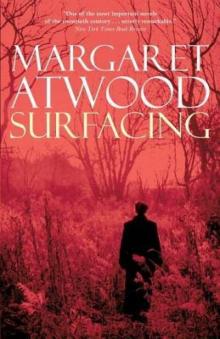 Surfacing
Surfacing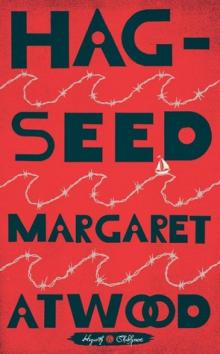 Hag-Seed
Hag-Seed Oryx and Crake
Oryx and Crake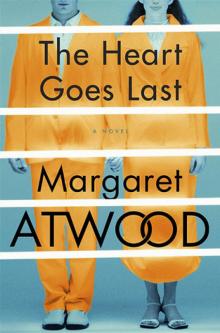 The Heart Goes Last
The Heart Goes Last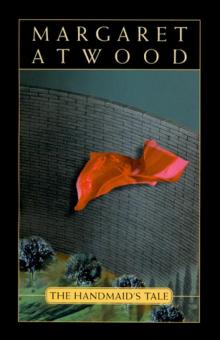 The Handmaid's Tale
The Handmaid's Tale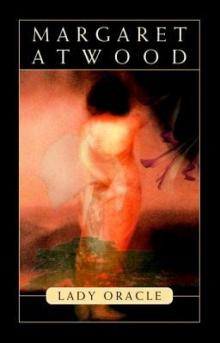 Lady Oracle
Lady Oracle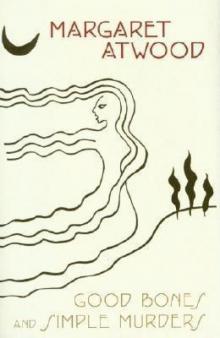 Good Bones and Simple Murders
Good Bones and Simple Murders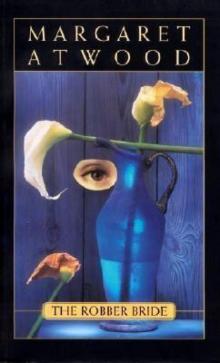 The Robber Bride
The Robber Bride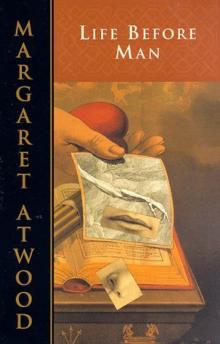 Life Before Man
Life Before Man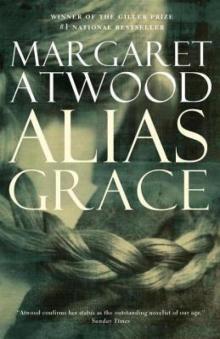 Alias Grace
Alias Grace The Blind Assassin
The Blind Assassin Cat's Eye
Cat's Eye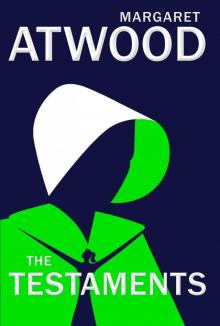 The Testaments
The Testaments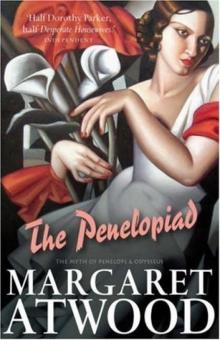 The Penelopiad
The Penelopiad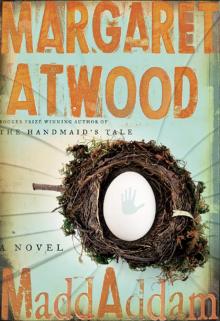 MaddAddam
MaddAddam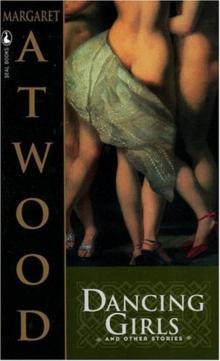 Dancing Girls & Other Stories
Dancing Girls & Other Stories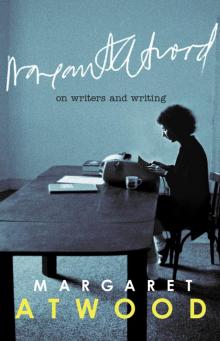 On Writers and Writing
On Writers and Writing Selected Poems II (1976-1986)
Selected Poems II (1976-1986)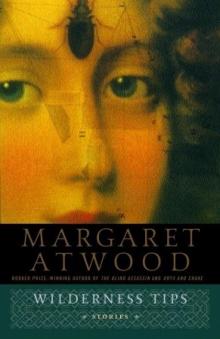 Wilderness Tips
Wilderness Tips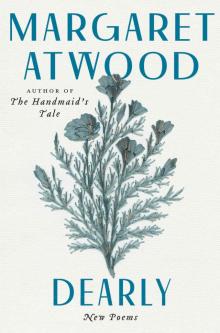 Dearly
Dearly The Tent
The Tent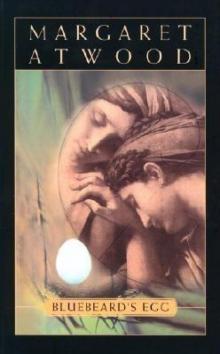 Bluebeard's Egg
Bluebeard's Egg The Edible Woman
The Edible Woman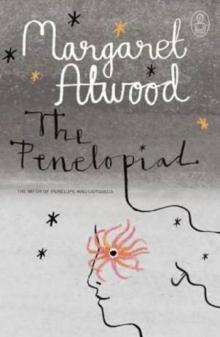 The Penelopiad: The Myth of Penelope and Odysseus
The Penelopiad: The Myth of Penelope and Odysseus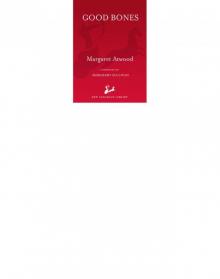 Good Bones
Good Bones I Dream of Zenia with the Bright Red Teeth
I Dream of Zenia with the Bright Red Teeth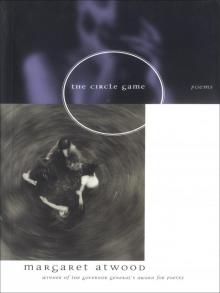 Circle Game
Circle Game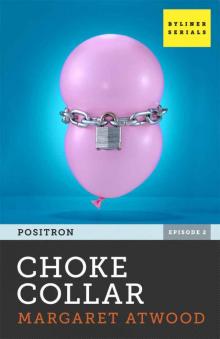 Choke Collar: Positron, Episode Two
Choke Collar: Positron, Episode Two Stone Mattress: Nine Tales
Stone Mattress: Nine Tales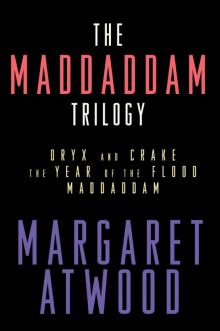 The MaddAddam Trilogy
The MaddAddam Trilogy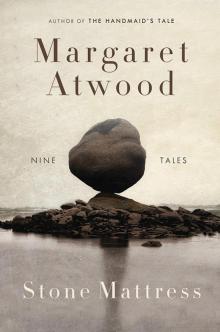 Stone Mattress
Stone Mattress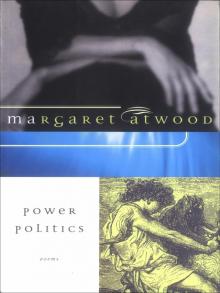 Power Politics
Power Politics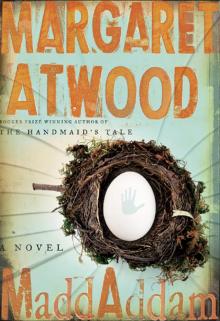 MaddAddam 03 - MaddAddam
MaddAddam 03 - MaddAddam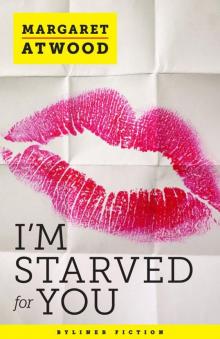 I’m Starved for You (Kindle Single)
I’m Starved for You (Kindle Single)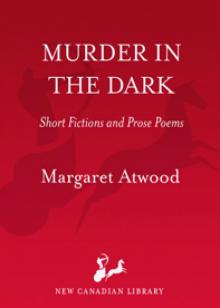 Murder in the Dark
Murder in the Dark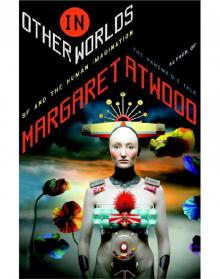 In Other Worlds
In Other Worlds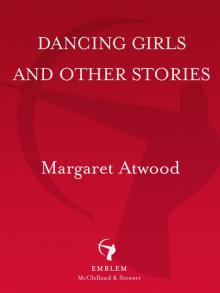 Dancing Girls
Dancing Girls Moral Disorder
Moral Disorder